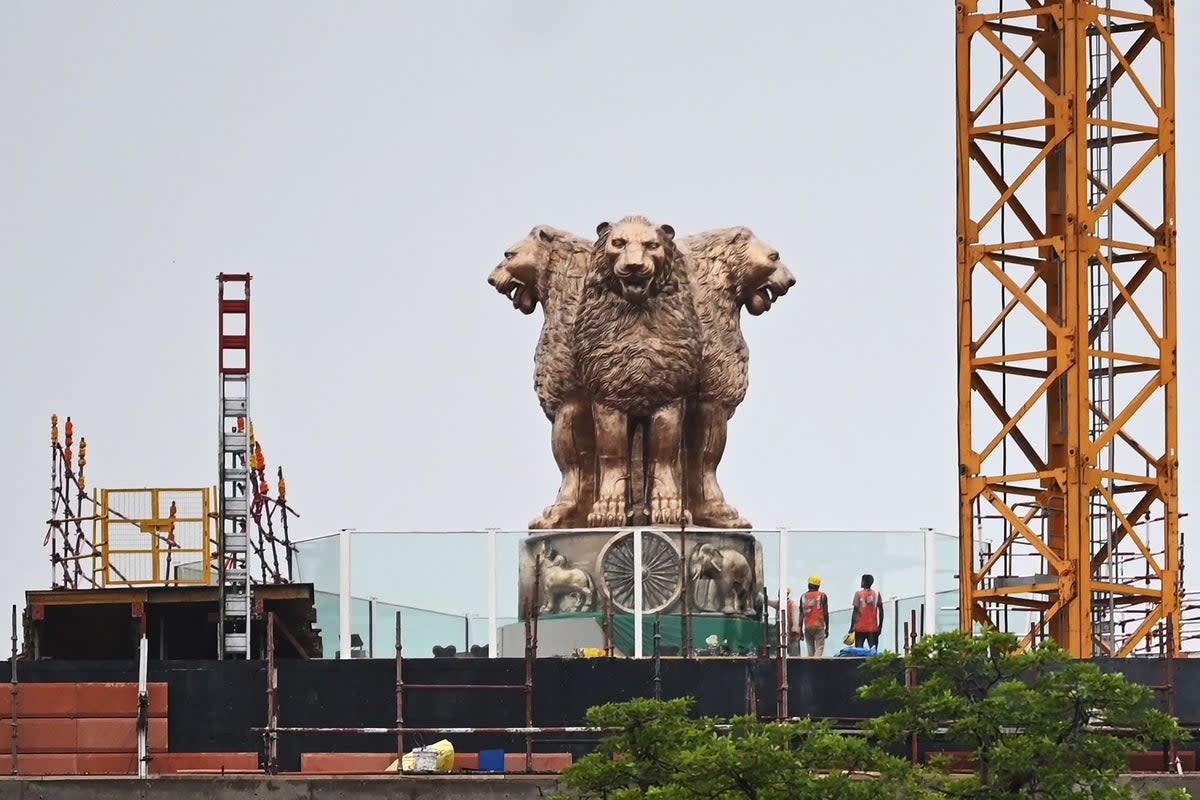Indian opposition parties unite in boycotting inauguration of new parliament building

At least 19 Indian opposition political parties on Wednesday announced that they would boycott the inauguration of a new parliament building by Narendra Modi, accusing the prime minister of “sidelining” Droupadi Murmu, India’s head of state.
The show of opposition unity just a year before the 2024 general elections has renewed speculations about a larger alliance to counter Mr Modi, who will seek to retain his office for a third term.
"Not getting the president to inaugurate the parliament nor invite her to the ceremony is an insult to the country's highest constitutional post," tweeted Rahul Gandhi, a member of the Congress party and Mr Modi's biggest contender.
"Parliament is not made of bricks of ego, but of constitutional values."
The opposition parties across the country criticised the Hindu nationalist Bharatiya Janata Party (BJP) government's decision to exclude President Murmu from the inauguration on 28 May.
" ...is not only a grave insult but a direct assault on our democracy which demands a commensurate response," the parties said in a joint statement.
"When the soul of democracy has been sucked out from the parliament, we find no value in a new building. We announce our collective decision to boycott the inauguration.
"This undignified act insults the high office of the president, and violates the letter and spirit of the Constitution. It undermines the spirit of inclusion which saw the nation celebrate its first woman Adivasi president," the parties added.
Since the begining of the project, the government has faced criticism for the lack of transparency and high costs.
Parliamentary Affairs Minister @JoshiPralhad urges political parties to participate in inaugural function of new #ParliamentBuilding .
Prime Minister to dedicate the newly constructed Parliament building to Nation on May 28. pic.twitter.com/HumtzFWANK— All India Radio News (@airnewsalerts) May 24, 2023
Construction of the building took place as a part of a Central Vista project aimed at revamping and replacing colonial-era government facilities. Work on the parliament began in January 2021 and the four-storey building is built at a cost of Rs 9.7bn (£94.2m).
The federal government defended the move, arguing that the parliament building was showing "signs of distress and over-utilisation” and “was not able to meet the current requirements in terms of space, amenities and technology".
The opposition parties previously boycotted the foundation laying ceremony in December 2020, citing concerns about its timing amid protests.
The old colonial-era parliament building will continue to be used, the government said.
Parliamentary Affairs minister Pralhad Joshi urged the members of the opposition parties to reconsider the boycott.
“Boycotting and making an issue out of a non-issue is most unfortunate. I appeal to them to reconsider their decision and join the function,” Mr Joshi told reporters in New Delhi.
“The Lok Sabha Speaker is the custodian of Parliament and the Speaker has invited the Prime Minister,” Mr Joshi said.

 Yahoo News
Yahoo News 
